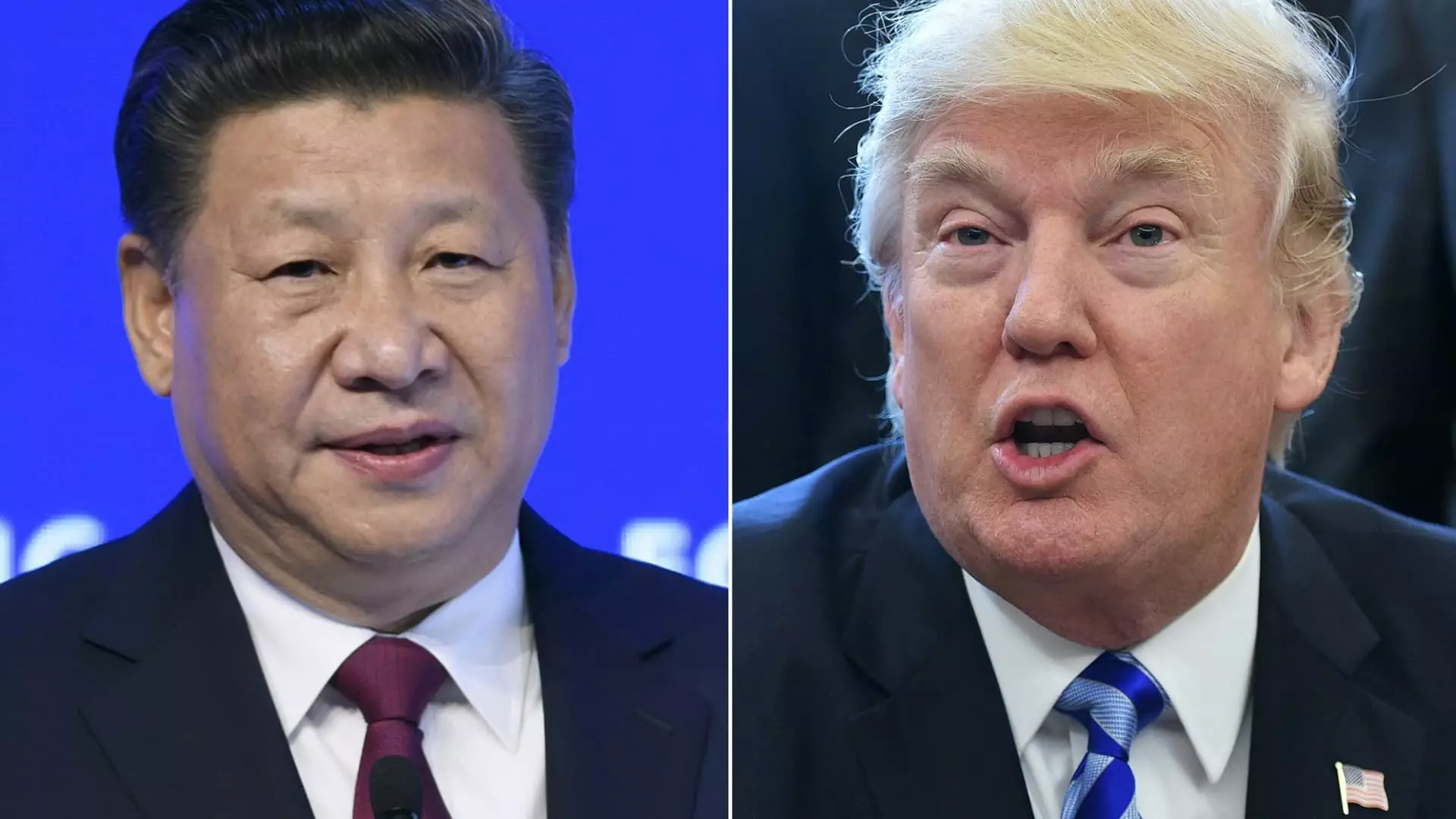The recent skirmish between the United States and China over trade agreements exemplifies the tumultuous landscape that has defined international relations under the Trump administration. In a world increasingly reliant on cooperative economic policies, the abrupt declaration by former President Donald Trump that China has “totally violated” their preliminary trade agreement serves as a stark reminder of how fragile diplomacy can be. This assertion, shared via social media, underscores not only Trump’s impulsive approach but also his tendency to paint foreign negotiations in dangerously simplistic terms.
Trump’s declaration of China’s breach raises eyebrows for several reasons. Firstly, it reflects the reality of geopolitical negotiation, where compliance and interpretation can often be murky. Trade agreements are rarely black and white; they are complex constructs requiring trust, mutuality, and sometimes, extended dialogue. Trump’s dramatic framing of the situation—declaring that he had to step in to save China from its own economic turmoil—might resonate with his base, but it lacks the nuance and depth necessary for genuine diplomatic engagement.
The Market’s Unnerving Response
Financial markets are never far behind when it comes to the turbulent waters of trade troubles. Trump’s comments, followed by a drop in U.S. stock futures, hint at the fragility of investor confidence. The volatility caused by presidential tweets or social media posts is indicative of an administration that operates more on impulse than comprehensive strategy. Leaps from “everything is stabilized” to warnings of “total violation” create an environment where businesses cannot adequately plan for the future.
U.S. Trade Representative Jamieson Greer echoed Trump’s sentiments but added a layer of bureaucratic concern. His use of the phrase “slow rolling compliance” and commentary on the “unacceptable” nature of the situation establishes the United States’ position while simultaneously reflecting the uncertainty that unnecessary alarmism can instigate. The stock market, after all, thrives on predictability and stability; the U.S. government’s unpredictable statements can lead to swift and unwanted market corrections.
Promises Made, Promises Broken?
It seems almost paradoxical to witness Trump’s nostalgia for a brief period during which he claimed to have “saved” China from economic disaster, while simultaneously bemoaning their uncooperative stance post-agreement. The irony is palpable here; his enthusiastic embrace of tariffs as a weapon in a trade war initially condemned China to a state of economic strife, only for him to later present himself as a benevolent figure eager to restore order to their economy. Such contradictions not only undermine the integrity of the trade discussions but also illustrate the chaotic nature of his leadership style—one that often favors bravado over consistency.
Trump’s remarks followed his own rhetorical pattern, where self-praise intertwines with an oversimplified portrayal of adversaries. By oscillating between antagonist and savior, he continues to position himself at the center of the narrative. This behavior feeds right into the “TACO” theory—that he will eventually “chicken out” of tough resolutions, a pattern that is only too familiar for keen observers of his policy shifts.
The Real Cost of Feigned Cooperation
Ultimately, Trump’s actions and statements reify a critical point: that while trade talks can yield smooth agreements on paper, the real-world impact can be far more detrimental. Businesses and citizens alike suffer from the fallout of his unpredictability, wherein feelings of insecurity perpetuate broader economic distress. By ignoring the complexities of global economic cooperation and reducing nuanced challenges to mere headlines, the political discourse shifts, affecting everything from market stability to international trust.
As we reflect on these developments, one must question whether the dance with China is about genuine partnership or merely another performance in a political theater aimed at garnering applause. The ambition for cooperation versus the reality of diplomacy raises pressing questions about the future. In an era where interdependence is pivotal, we cannot afford to overlook the dangers of oversimplified narratives that, instead of fostering collaboration, threaten to unravel years of fragile international diplomacy.


Leave a Reply